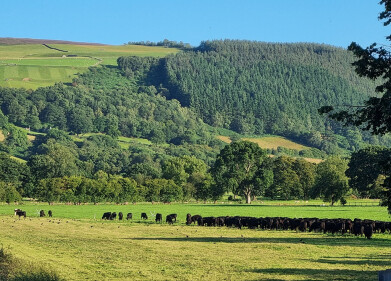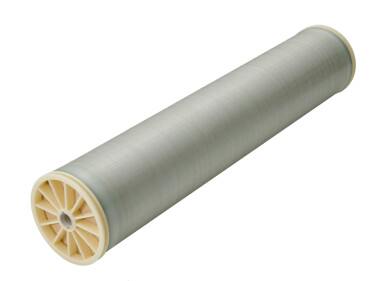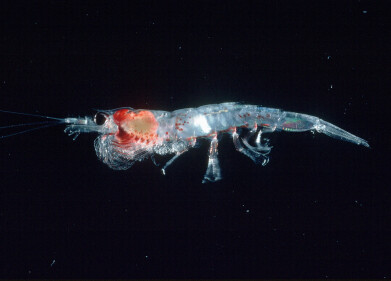Water/Wastewater
UAE to Award US$5million in Research Grants to Develop Rain Enhancement Science and Technology
Feb 23 2015
Calls for submissions that address global water security challenges
The United Arab Emirates (UAE) has called for proposals in the science and technology of rain enhancement as part of its latest research program that will award up to five grants totaling US$5 million.
The goals of the research program are to augment rainfall towards ensuring sustained water security in the UAE, and other arid and semi-arid regions. The initiative seeks to ultimately position the UAE as the world leader in rain enhancement science through globally advancing research and innovation in rainfall enhancement, while promoting scientific understanding, practice and capacity building.
Public or private, non-profit or for-profit organizations, as well as individuals from any country are invited to send in their proposals to the program. Successful applicants will propose new integrated techniques or technologies that increase the efficiency of cloud seeding, and/or develop the predictive capabilities of cloud seeding operations.
Commenting on the scope of the program, His Highness Sheikh Mansour Bin Zayed Al Nahyan, Minister of Presidential Affairs and Deputy Prime Minister of the United Arab Emirates, said: “As a subtropical arid country, access to sustainable water supplies is one of our defining challenges. Through a focus on innovative, cutting edge science that addresses the multiple challenges of water security, we will provide leadership in addressing and mitigating the social and economic effects of water scarcity. This program will have a significant ripple effect, directly increasing the level of research and action in the critical area of rain enhancement, on a global scale.”
The UAE Research Program for Rain Enhancement Science has been launched by the Ministry of Presidential Affairs and is being managed by the National Center for Meteorology and Seismology.
The submission deadline for pre-proposals is March 16. Once evaluated, the entries will be shortlisted to an invited group by May 1, with full proposals due by midnight of August 17, 2015. Detailed information about submissions and the program can be obtained at www.uaerep.ae.
Up to five projects will be selected to go forward, and each will receive a share of the US$5 million grant in project funding, which will be dispersed over a three-year period. The funding will be used to bring the projects to a commercial reality, with implementation starting within a month of the announcement of the winners in January 2016.
As part of the application process, all candidates must clearly demonstrate their access to the necessary facilities and infrastructure to carry out the proposed project, and ability to responsibly manage the program’s grants.
The two-stage selection process will evaluate the technical aspects of the proposed projects and their potential to contribute to advancing the effectiveness and efficiency of rainfall enhancement, based on the following elements:
- Overall Scientific & Technical Merit, Significance and Innovation
- Research Approach
- Qualifications of the Research Team
- Required Resources and Budget
- Contribution to Capacity Development in the Field
The Case for Rain Enhancement
Water scarcity today affects every continent and nearly three billion people around the world. One of every six people in the world does not have access to clean drinking water. Water use has grown at more than twice the rate of population increase in the last century, and a number of regions face chronic shortages. It is a cause of local and regional conflicts as well as social strife.
Water is also key to food security. Crops and livestock need water to grow. Agriculture requires large quantities of water for irrigation and other process and accounts for nearly 70 percent of all freshwater consumption.
The United Nations’ World Water Day has focused international attention on the theme of ‘Water and Food Security’. It sought to raise awareness of the emerging crisis, and to encourage leaders to address these global challenges. The UN has stated that water scarcity is one of the critical challenges the world is facing in the 21st century.
Experts agree that water scarcity should be addressed by better management and conservation policies, but also that there are tremendous societal benefits from increasing water supplies, especially in arid and semi-arid regions.
A report by the US National Academy of Sciences has stated that “searching for ways to enhance precipitation…is one of the most important challenges that can be tackled by science.”
“Improving the science and technology underlying rain enhancement is an urgent need,” said Dr Abdullah Al Mandoos, Executive Director of the National Center Meteorology and Seismology. “Since the first cloud-seeding experiments were conducted over 50 years ago, there remains a gap in scientific understanding and research about the field and its related technologies. The ambition of our program is to begin to fill this gap.”
The Search for Scientific Understanding, Validation and Solutions
The UAE’s program seeks methods to reliably measure and predict the effectiveness of cloud seeding, and to develop new cloud seeding technologies for fresh water augmentation.
The UAE program is designed to attract diverse new researchers, technologists and entrepreneurs in pursuit of new scientific understanding of cloud physics and dynamics, cloud-cloud interactions, cloud systems, precipitation production, and other relevant processes. It will aim to create an archive of knowledge and share all experimental data through an open source system.
The following list provides the general research areas that are the focus of the program::
Fundamental Understanding of Rainfall Enhancement
Cloud microphysics (nucleation processes, water and ice processes, precipitation processes)
Cloud dynamics and thermodynamics – including linking the microphysics and dynamics to characterize the physical chain of events (single and multiple cell clouds, large mesoscale systems, cloud-ground interactions)
Aerosol//cloud interactions, characterization of background aerosols in relevant environments (particle size, chemical composition, diurnal variations, production mechanisms)
Precipitation particle formation and mechanisms of rainfall
Characterization of cloud seeding materials and delivery to fundamentally understand how cloud seeding works regarding chemistry, physics, dynamics and thermodynamics
Impact of cloud seeding methods on cloud chemistry, physics, and dynamics
Now-casting and fore-casting of weather to properly time seeding operations and measurement activities
Data Modeling, Analysis, and Evaluation
Data and analysis (comprehensive data bases, historical and new data, analysis and re-analysis of previous experiments to gain substantial new insights)
Modeling (microphysical, cloud dynamics, mesoscale, seeding effects, validation with data sets)
Evaluation/Statistics – especially separating quantification of seeding effects from natural variability (covariates prediction, advanced statistical techniques, integration of validation into experimental and operational methodologies)
Experimental Design, Technologies, Instrumentation
Production and characterization of different/new seeding materials and approaches to seeding
Seeding methodologies assessment (ground-based, airborne)
Remote sensing as well as in-situ observation and technologies applied to rainfall enhancement
Field experiments design; small and focused as well as large scale
Integral to technology development will be training and capacity-building, both in the UAE and globally.
The open data policy is intended to facilitate the translation and dissemination of research results to accelerate advancement of the field.
Finally, researchers are being asked to address social and environmental aspects of their work, including public outreach and engagement, regional and global effects of weather modification on hydrology, and environmental impact.
Events
Carrefour des Gestions Locales de L'eau
Jan 22 2025 Rennes, France
Jan 29 2025 Tokyo, Japan
Feb 05 2025 Nantes, France
Feb 16 2025 Kampala, Uganda
Feb 26 2025 Chennai, India




-as-feedstock.jpg)





